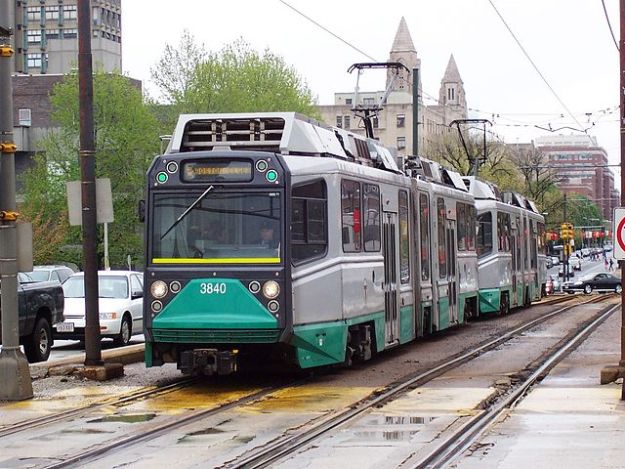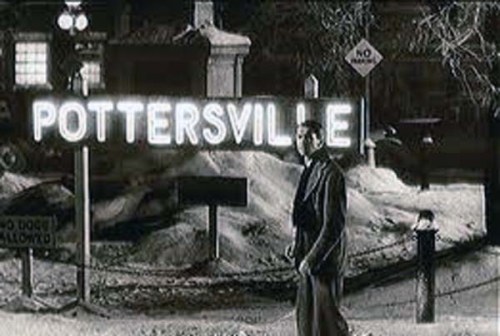
Caesar
The chaos that has broken out over the split between Suffolk Downs and Caesars Entertainment is good news for casino opponents. At the very least, it increases the likelihood that East Boston residents will vote no on Nov. 5. At most, we may be able to look forward to delays and lawsuits for years to come.
I was particularly struck by the accusation — reported by Mark Arsenault in The Boston Globe — that Caesars separated one wealthy gambler from his money by keeping him liquored up and plying him with painkillers. I know nothing about the details of that accusation. But it actually fits well with the business model for casinos.
I’ve flagged this before, and it’s worth flagging again: according to Michael Jonas of CommonWealth Magazine, casinos could not survive if it weren’t for the problem gamblers who provide a disproportionate share of the revenues. Jonas explains it this way:
Just how much of the revenue casinos bring in is from the losses of those with gambling problems? One of the most thorough studies of this issue was done in 2004 in Ontario, where researchers had a sample of residents maintain diaries logging their gambling expenditures. The study, prepared for the government-supported Ontario Problem Gambling Research Centre, estimated that 35 percent of Ontario casino revenues were derived from moderate to severe problem gamblers. Such gamblers accounted for 30 percent of revenue from casino table games and a whopping 62 percent of revenue from slot machines.
I remain appalled that Gov. Deval Patrick and the Legislature legalized casinos and slots, which are associated with higher rates of crime, divorce and suicide. But I’m optimistic that these social parasites can be stopped one at a time.
Below is a statement from No Eastie Casino:
EAST BOSTON, Mass. — Oct. 19, 2013 — For more than a year, No Eastie Casino has pushed the City of Boston and Suffolk Downs to share more information about Suffolk Downs’ proposed Caesars Entertainment Resort. After ignoring repeated calls for greater transparency and concerns about Caesars’ solvency raised by East Boston residents, on Friday Suffolk Downs dropped the operations partner it chose in 2011 to run a casino in East Boston, Caesars Entertainment, only after state investigators informed them that Suffolk Downs likely would not pass the background check if Caesars stayed on. The Boston Globe reported that a number of concerns were brought to Suffolk Downs’ attention, including Caesars’ alleged business ties to organized crime.
But East Boston casino opponents say the stunning news late Friday demonstrates that residents cannot trust Suffolk Downs when it comes to whom they choose to bring into the neighborhood, said No Eastie Casino co-chair Celeste Myers.
“As recently as two months ago, Suffolk Downs owner Joe O’Donnell stated that Caesars was ‘as professional as they come,'” Myers said, pointing out Suffolk Downs’ frequent assertion that it shares Caesars’ values. “Clearly, they did not do due diligence in vetting Caesars — a company with which they have had a relationship since 2011 — and only ended the relationship when forced to do so.”
She added that Suffolk Downs has now picked two corporations, Caesars and Vornado Realty Trust, that have been unable or unwilling to pass background checks. In March, Vornado put its 19 percent stake in the casino plan into a blind trust after the majority of its executive team refused the state’s mandatory background checks. To our knowledge, Vornado has not divested completely from the casino partnership and voters remain in the dark about who will pick up its nearly one-fifth share in the project.
Caesars’ sudden departure also raises serious questions about the value of the City’s and Suffolk Downs’ host community agreement and shows that the promises in the mitigation agreement were made to be broken. Many key elements of the mitigation agreement-including key components of the jobs and small business plans-were tied to Caesars’ employee practices and Total Rewards programs. (Download our 16-page mitigation analysis here.)
No Eastie Casino leaders on Saturday formally called on Suffolk Downs to withdraw its casino application, in light of the information that emerged late Friday, and to share full details about their casino plans — including what they knew about Caesars and when they knew it — with the community at large.
“Now, more than ever, our neighbors and voters are seeing the glaring problems in the Suffolk Downs casino plans and the flaws in transparency that have plagued this fight from the start,” Myers said. “We hope Suffolk Downs and the City of Boston do the right thing and withdraw their support of this project. Until they do, our campaign will continue to reach out to and educate voters until we are victorious on Nov. 5.”






